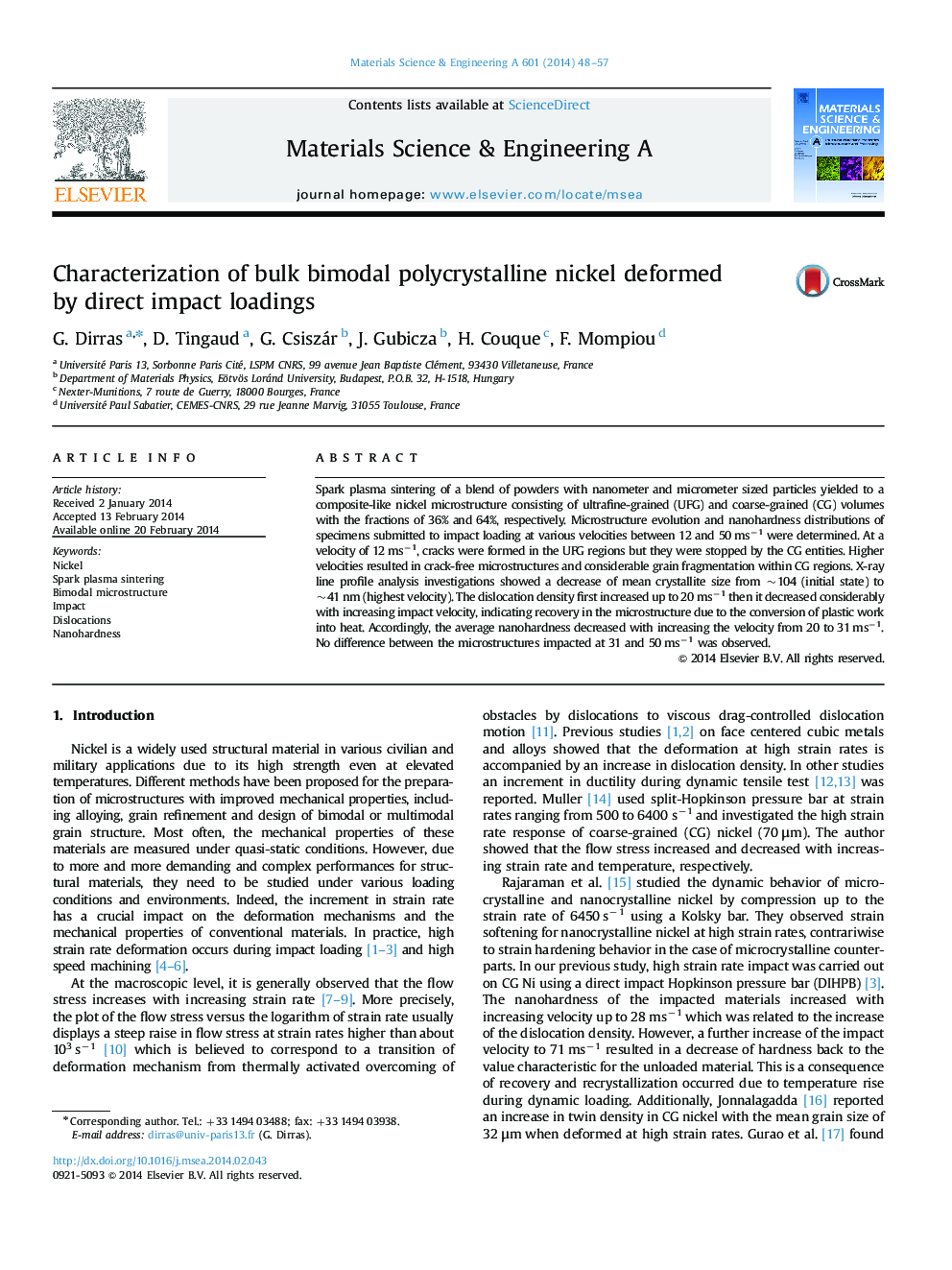| Article ID | Journal | Published Year | Pages | File Type |
|---|---|---|---|---|
| 1575283 | Materials Science and Engineering: A | 2014 | 10 Pages |
Abstract
Spark plasma sintering of a blend of powders with nanometer and micrometer sized particles yielded to a composite-like nickel microstructure consisting of ultrafine-grained (UFG) and coarse-grained (CG) volumes with the fractions of 36% and 64%, respectively. Microstructure evolution and nanohardness distributions of specimens submitted to impact loading at various velocities between 12 and 50Â msâ1 were determined. At a velocity of 12Â msâ1, cracks were formed in the UFG regions but they were stopped by the CG entities. Higher velocities resulted in crack-free microstructures and considerable grain fragmentation within CG regions. X-ray line profile analysis investigations showed a decrease of mean crystallite size from ~104 (initial state) to ~41Â nm (highest velocity). The dislocation density first increased up to 20Â msâ1 then it decreased considerably with increasing impact velocity, indicating recovery in the microstructure due to the conversion of plastic work into heat. Accordingly, the average nanohardness decreased with increasing the velocity from 20 to 31Â msâ1. No difference between the microstructures impacted at 31 and 50Â msâ1 was observed.
Related Topics
Physical Sciences and Engineering
Materials Science
Materials Science (General)
Authors
G. Dirras, D. Tingaud, G. Csiszár, J. Gubicza, H. Couque, F. Mompiou,
